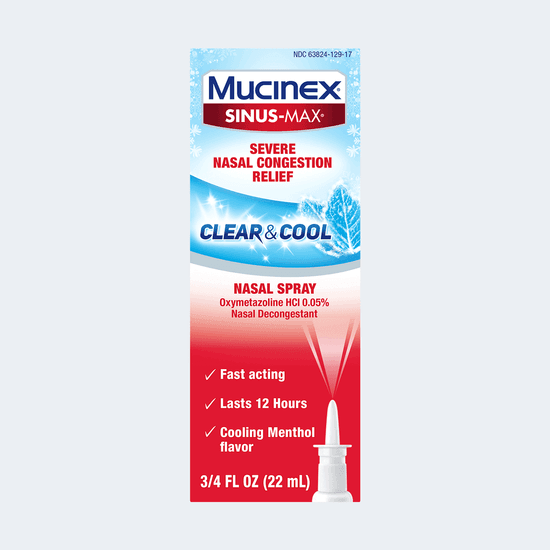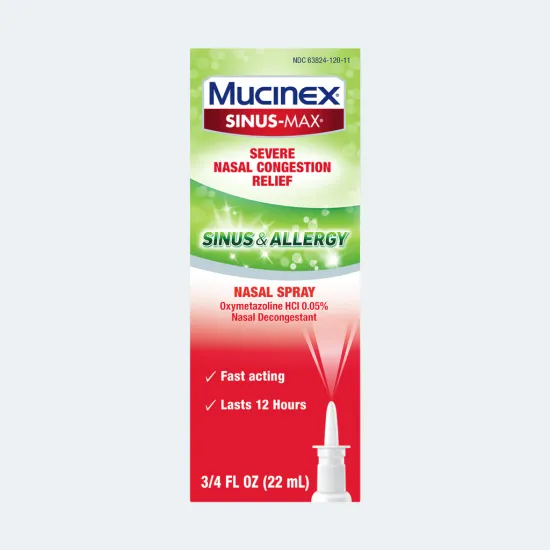
Relieving Nasal Congestion with the Right Approach
Shop the article


06 AUG 2024
If you're struggling to breathe through a stuffy nose, missing out on the savory flavors of your meals, or your congested voice is unrecognizable on the phone, chances are nasal congestion is to blame. This symptom can be the result of a common cold, the flu, a sinus infection, or allergies. Regardless of whether it's an infection or allergy-induced inflammation, you don't want the burden of a congested nose slowing you down by day or disrupting your sleep at night. Over-the-counter decongestants can be a go-to for relieving nasal congestion, provided they are used as directed.
The Truth Behind Nasal Congestion
Despite the feeling that your nose is packed full, nasal congestion is actually the result of swollen nasal tissues and underlying inflamed blood vessels, coupled with an overproduction of mucus in response to an infection or allergens. To combat this, over-the-counter decongestants come into play, offering quick and temporary relief. They effectively shrink the inflamed vessels, fostering mucus flow, alleviating pressure, and simplifying the task of breathing.
Options for Relieving Nasal Congestion
Over-the-counter decongestants are readily available in several forms: nasal sprays, tablets, capsules, liquids, and even powders that dissolve in hot water for a warming effect. When used as directed, products like the Mucinex® Sinus-Max® Full Force® Nasal Spray are centered on one goal: clearing stuffy noses by targeting the congestion itself. If a pill is more your style, Maximum Strength Mucinex® D tablets can promote nasal congestion relief similarly.
It's prudent to consult a healthcare provider before incorporating any new medication into your routine, and this is especially true for over-the-counter decongestants. These medicines constrict blood vessels not just in the nasal passages but body-wide, which is why caution is advised for individuals with conditions like high blood pressure or heart disease, among others. Pregnant or nursing women should also seek medical advice due to the uncertain effects of these medications on infants or during pregnancy.
Nasal Congestion Relief: Best Practices
For the most effective relief for clearing stuffy noses and soothing sinus congestion, consider these tips:
- Seek medical clearance if you have pre-existing health conditions or are on other medications, as interactions are possible.
- Opt for an over-the-counter decongestant that focuses on the symptoms you're facing—single-ingredient formulations are best for specifically targeting nasal congestion.
- Adhere strictly to dosing and usage guidelines to maximize the benefits.
- Limit the use of decongestant nasal sprays to avoid rebound congestion; they are typically recommended for no more than a week.
- Complement your nasal congestion relief efforts with plenty of fluids to thin out mucus, apply warm compresses to ease sinus pressure, and make sure you get ample rest to help your body recover.
References
- Cleveland Clinic: Acute Sinusitis
- Medline Plus: Sinusitis
- Medline Plus: Stuffy or Runny Nose — Adult
- Medline Plus: Sinusitis in Adults – Aftercare
- NHS Choices: Decongestants
- Harvard Health Publications: Don’t Let Decongestants Squeeze Your Heart
- Cleveland Clinic: Nasal Congestion (Stuffy Nose): What It Is, Causes & Treatment
